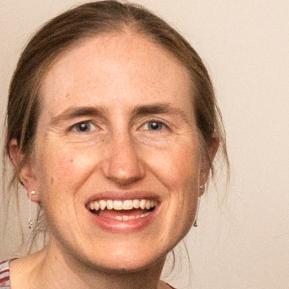Empowering Peer Supporters
Developing scalable training for improved mental health support
Millions of people (nearly 1 in 5 American adults) are touched by mental illness. Mental illness can significantly reduce a person’s quality of life and have substantial economic consequences. Most of the people affected never receive treatment due to structural barriers such as high treatment costs and a lack of trained professionals. Peer support, often provided by volunteers, is emerging as a promising remedy in today’s climate of undertreatment because of its anonymity, empowerment, and accessibility.
Developing quality and scalable training for peer supporters is key to making peer support effective. In this project, our goal is to enhance the quality, scalability, and efficacy of online peer-to-peer counseling. Specifically, we will conduct qualitative studies in collaboration with domain experts and volunteer listening platforms including 7 Cups, Talkspace, and Brightside to understand the challenges volunteer listeners and peer supporters face when conducting online counseling. An earlier stage of our work also benefited from the support of the 7 Cups leadership team. In addition to building innovative machine learning models designed to offer feedback to peer supporters, we will develop reinforcement learning approaches to help supporters quickly learn the most effective strategies.
By enhancing the training available to peer supporters who volunteer their time to provide support to many people who may otherwise lack access to traditional, in-person psychotherapy, our project could have a transformative impact on the growing mental health crisis. By collaborating with partners able to offer us real-world data and/or expert feedback, the training models we develop could also be used to train other healthcare professionals (for example, counseling staff at university centers or nurses learning motivational interviewing for behavioral change).

2023 Scholar in Service; Associate Professor, Computer Science

Assistant Professor, Computer Science
Related Links:
- Can LLM-Simulated Practice and Feedback Upskill Human Counselors? A Randomized Study with 90+ Novice Counselors [arXiv, May 5, 2025]
- Using AI To Train Peer Counselors [Stanford Institute for Human-Centered AI, Aug 26, 2024]
- Roleplay-doh: Enabling Domain-Experts to Create LLM-simulated Patients via Eliciting and Adhering to Principles [arXiv, July 1, 2024]
- Diyi Yang: Human-Centered Natural Language Processing Will Produce More Inclusive Technologies [Stanford Institute for Human-Centered AI, May 9, 2023]
- Metrics for Peer Counseling: Triangulating Success Outcomes for Online Therapy Platforms [Proceedings of the 2023 CHI Conference on Human Factors in Computing Systems, April 13, 2023]
- Multi-Level Feedback Generation with Large Language Models for Empowering Novice Peer Counselors [arXiv, March 21, 2024]
- Modeling Motivational Interviewing Strategies On An Online Peer-to-Peer Counseling Platform [Proceedings of the ACM on Human-Computer Interaction, November 11, 2022]

